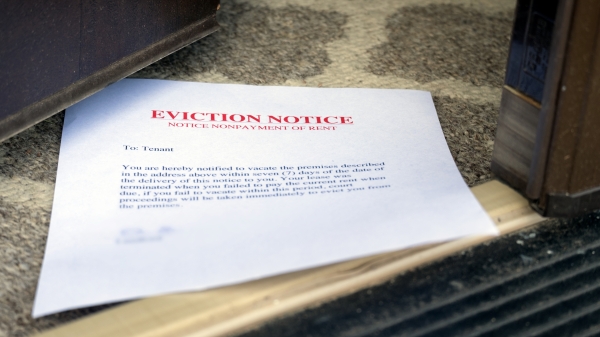Staff Report
MONTGOMERY – On Thursday a press conference was held by House Speaker Mike Hubbard and members of the House Republican leadership.
Hubbard said that from pension reform to repealing the legislative pay raise, and from rewriting the state’s constitution to making strides to improve public schools, lawmakers’ achievements made the 2012 Regular Session a major success.
“The days of the ‘do-nothing’ Legislature in Alabama are over,” Speaker Hubbard said. “Alabama now has a ‘do-something’ Legislature, and I’m proud that we built upon our momentum this year and passed even more conservative reforms. We passed bills that are already creating jobs and lowering Alabama’s unemployment rate. We overhauled our state’s pension system, cut red tape for consumers and small businesses, and streamlined government agencies to remove unnecessary bureaucracy.
“When you look at the body of work that was accomplished, there’s no question the 2012 Regular Session was a major success.”
Hubbard went on to say that Alabama’s movement toward responsible, conservative government didn’t stop with last year’s successful “Republican Handshake with Alabama.” According to the republican leadership the 2012 Regular Session, built upon their momentum and passed several conservative reforms that will help create jobs, allow local communities more tools to improve education, and reign in wasteful government spending and debt.
Below are a list of bill’s that were successful passed in the 2012 session
Job Creation
The Legislative Leadership made it clear from the start that their top priority in 2012 would be job creation and economic growth. That’s exactly what happened, as lawmakers wasted no time passing pro-growth jobs bills that are already beginning to have a positive effect on Alabama’s economy.
Here’s a list of jobs bills that were successfully passed by the Legislature and signed into law by Governor Bentley (unless otherwise noted):
Enhanced Incentives to Recruit Job-Creating Coal Mining Projects, House Bill 144 sponsored by Rep. Bill Roberts (R-Jasper)
- This new law enhances the state’s ability to recruit coal mining companies by allowing them to qualify for certain existing tax incentives currently available to manufacturers and other businesses.
- As a direct result of this law, this month Walter Energy announced it will build a $1.2 billion facility and bring more than 530 jobs to Alabama.
The “Heroes for Hire” Tax Credit Act, House Bill 152 sponsored by Rep. DuWayne Bridges (R-Valley)
- With wars winding down in Iraq and Afghanistan, thousands of Alabama veterans will soon return home to a difficult economy in which it is hard to find a job.
- This new law offers Alabama businesses a $2000 tax credit for hiring a veteran recently returned from war.
Aviation and Aerospace Economic Incentives, House Bill 39 sponsored by Rep. Paul Lee (R-Dothan)
This new law provides for a special tax incentive allowing Alabama to target aircraft manufacturers and aircraft parts manufacturers.
Alabama Film Incentive Enhancement Act, House Bill 243 sponsored by Rep. Terri Collins (R-Decatur)
- Alabama has long trailed behind other states in the film and television production industry because our state lacked the incentives other states have to help attract these job-creating productions here.
- A 2011 law that included television productions in Alabama’s film incentive statute has already rendered great success as the popular shows “Rocket City Rednecks,” “Big Shrimpin’” and “Sweet Home Alabama” all based their productions in state.
- This new law expands Alabama’s film/television production incentive cap from $10 to $15 million, making Alabama more competitive in the industry.
- The law also doubles the amount productions could spend and count toward tax incentive rebates from $10 million to $20 million. This would help Alabama attract larger productions that will in turn create more jobs.
The Alabama Data Processing Center Economic Incentive Enhancement Act, House Bill 154 sponsored by Rep. Dan Williams (R-Athens)
- Data processing centers are key components of the 21st century economy. These centers employ a skilled workforce, provide high-paying jobs, and have a low environmental footprint. Alabama is uniquely positioned to compete for jobs in this growing industry.
- This new law expands the scope of certain tax incentives in order to focus on recruiting more data processing centers to Alabama.
Spurring Investment in Struggling Communities, House Bill 257 sponsored by Rep. Jamie Ison (R – Mobile) *not yet signed into law
- This new law would encourage economic investment and job growth in low income areas by leveraging available federal tax incentives with new state tax incentive offerings.
- In exchange for their investments in qualified businesses and projects located in low-income downtown areas throughout Alabama, the state will offer investors a future tax credit.
- Investors could claim a 50 percent graduated tax credit over the course of seven years for investments up to $240 million. The credit is zero for the first year and 8 percent for each of the next five years, then ten percent the seventh year.
Flexible Capital Tax Credits for Job Creators, House Bill 140 sponsored by Rep. Micky Hammon (R-Decatur) *has not yet been signed into law
This new law would allow new and expanding businesses that spend at least $100 million on capital improvements and hire at least 100 people to delay the tax credit for up to four years.
New or expanding companies typically qualify for an income tax credit for five percent of their investment each year for 20 years. This law would allow a company that invests $400 million to carry forward the credit for four additional years. The credit can be held for three years for a $300 million investment, two years for $200 million and one year for $100 million.
Public Database of Bids and Contract Proposals Involving Taxpayer Money, Senate Bill 30 sponsored by Sen. Arthur Orr (R-Decatur) and Rep. Phil Williams (R-Huntsville)
- This new law would require the state comptroller to create and maintain a public database on the www.Open.Alabama.gov website on which bids or contract proposals involving state funds or federal grant money must be posted.
- This statute was a recommendation of the Speaker’s Commission on Job Creation, which was chaired by Rep. Williams.
Improving Education
In Alabama we want excellent teachers in every classroom preparing the next generation of Alabamians to be our greatest yet. That starts by ensuring accountability in all public schools, incentivizing performance in the classroom and supporting the needs of our teachers.
Public School Accountability and Performance Incentive plan, House Bill 588, sponsored by Rep. Terri Collins (R-Decatur) and Rep. Donnie Chesteen (R-Geneva) *this bill has not yet been signed into law
- This new law would establish a simple, comprehensive and consistent system to grade school performance, allowing parents and community leaders to better understand how their local schools are faring.
- Senate President Pro Tempore Del Marsh (R-Anniston) took it a step further by combining his proposal to set up a school performance bonus system to incentivize improved student achievement.
- A universally-comprehendible A-B-C-D-F grade would be assigned to each school and made public, and all schools would be graded consistently so that grades of one school or system may be compared to the grades of any other school or system.
- Lawmakers began developing the proposal after a meeting with former Florida Governor Jeb Bush, who told them implementing an accurate, consistent, easy-to-understand school grading system was the single reform most responsible for Florida’s extraordinary gains in education.
Rewarding Teacher Certification, Senate Bill 143 sponsored by Sen. Jabo Waggoner (R-Birmingham) & Rep. Jay Love *this bill has not been signed into law
- This new law would set aside $2.3 million in a conditional appropriation to fund a $5,000 bonus for teachers who become national board certified.
Funding Classroom Supplies for Teachers, Senate Bill 257 sponsored by Sen. Greg Reed (R-Jasper) and Rep. Bill Roberts (R-Jasper)
- This new law makes a special appropriation that affords each classroom teacher $300 to spend on classroom supplies and materials
Lowering Minimum School Start Age, Senate Bill 28 sponsored by Sen. Priscilla Dunn (D-Bessemer) and Rep. John Merrill (R – Tuscaloosa)
- This new law lowers the age at which children must attend school from seven-years-old to six-years-old, bringing Alabama in line with bordering states.
- A provision allows parents to request an exemption from the school board.
Efficient, Responsible Governing
As the branch of government charged with appropriating taxpayer dollars, it is the Legislature’s duty to ensure that state government is operating as efficiently as possible and that taxpayers are getting their money’s worth. Lawmakers must examine every dime of state spending, set priorities and, like every Alabama business and family, make the government live within its means.
Legislative Pay Raise Repeal & Compensation Reform, House Bill 276 sponsored by Rep. Mike Ball (R-Huntsville)
- This Constitutional Amendment would repeal the 2007 pay raise and allow voters to determine legislative pay at the ballot box.
- The plan put before the voters would tie legislative pay to median household income, meaning it would increase or decrease based on how Alabamians are doing economically.
- The amendment also repeals automatic cost-of-living adjustments passed in 2007, and would make it illegal for lawmakers to raise their own pay ever again.
Pension Reform, Senate Bill 388 sponsored by Sen. Arthur Orr (R-Decatur), Rep. Jamie Ison (R-Mobile) and Rep. Mac McCutcheon (R-Capshaw)
- Taxpayer contributions to fund RSA have more than tripled since 2001, from $330 million to almost $1 billion this year.
- With estimates showing the state’s retirement systems running out of money by as soon as 2023, changes must be made to ensure the long-term financial stability of the state.
- This landmark new law sets a minimum retirement age of 62 for most employees and 56 for law enforcement, saving the state more than $3 billion over 30 years.
- These changes do not affect current employees or retirees. New rules will only affect new employees hired beginning in 2013.
No Taxpayer-Funded Benefits for Felons, Senate Bill 213 sponsored by Sen. Arthur Orr and Rep. Donnie Chesteen (R-Geneva)
- Unfortunately we have recently heard accounts of teachers and other public employees who still reap state-funded benefits even though they’ve been convicted on corruption or even sex crimes.
- This new law would make any public employee who is convicted of a felony ineligible for state retirement benefits.
Constitutional Reform, House Bills 357 & 358 sponsored by Rep. Paul DeMarco (R-Homewood)
- Many past legislatures have promised action on rewriting the state’s 1901 Constitution. In 2012, this Legislature delivered on that promise.
- House Bill 357 updates and modernizes language in Article 12 of the 1901 Alabama Constitution dealing with private corporations, railroads and canals.
- House Bill 358 updates and modernizes Article 13 dealing with banks and banking law.
Coastal Insurance Reform
- House Bill 166 sponsored Rep. Steve McMillan (R-Gulf Shores) – the “Homeowners Bill of Rights Act,” which would require insurance companies to be transparent about exactly what coverage is offered in their policies.
- House Bill 323 sponsored by Rep. Steve McMillan – gives the state more tools to fight insurance fraud by increasing penalties.
- Senate Bill 230 sponsored by Sen. Ben Brooks (R-Mobile) – provides a limited premium tax credit for insurance companies that depopulate the insurance “wind pool”
- Senate Bill 227 sponsored by Sen. Ben Brooks – allows consumers to set up a catastrophe savings account to pay for deductibles on primary residences.
- Senate Bill 210 sponsored by Sen. Trip Pittman (R-Montrose) – requires the Alabama Department of Insurance to keep and publish a historical record of insurance rates to ensure transparency for consumers.
Cracking Down on Unemployment Fraud, House Bill 72 sponsored by Rep. Paul DeMarco (R-Homewood)
- The Department of Industrial Relations estimates that during Fiscal Year 2011, more than 12,000 individuals fraudulently received unemployment compensation benefits, costing the state more than $15 million.
- That’s $15 million that was meant to aid unemployed workers and families who need help in these difficult economic times.
- Under this new law, those caught defrauding the unemployment compensation fund of more than $2,500 will be guilty of a Class B felony. Less than $2,500 constitutes a Class B felony, and less than $500 is a Class A misdemeanor.
- Those who cheat the system will also be disqualified from receiving any unemployment benefits for a 52-week period, and subsequent offenses will be punished by a 104-week disqualification.
- Those found guilty of fraud would also be forced to repay the fraudulently-received benefits along with an interest penalty to the Alabama Department of Industrial Relations.
Streamlined Tax Filing for Businesses, Senate Bill 459 sponsored by Sen. Slade Blackwell (R-Birmingham) and Rep. Jack Williams (R-Birmingham)
- This new law will streamline the process for businesses filing tax returns with cities and counties across the state, a key recommendation from both Senate President Pro Tem Del Marsh’s Initiative to Streamline Government and House Speaker Mike Hubbard’s Commission on Job Creation.
- The law creates an electronic single point of filing system that will be made available for filing and remitting state and local sales, use and rental and lease taxes.
- The system, known as ONE SPOT – Optional Network Election for Single Point Online Transactions, will be administered by the Alabama Department of Revenue and available for use by both taxpayers and Alabama municipalities and counties at no cost. The system must be operational in time for returns and payments due in tax periods that begin after Sept. 30, 2013.
The “TTYL” Texting While Driving Ban, House Bill 2 sponsored by Rep. Jim McClendon (R-Springville)
- This new law prohibits driving a vehicle on an Alabama highway or street while using a wireless telecommunication device to write, send or read a text-based communication, including email.
Restricting Funeral Disruptions, House Bill 238, sponsored by Rep. DuWayne Bridges (R-Valley)
- This new law sets a perimeter of 1000 feet, or two blocks, for any disruption of a funeral in Alabama.
- The law is needed because the hate group calling itself the “Westboro Baptist Church” has disrupted the funeral and burial ceremonies of fallen military personnel, at least one victim of the 2006 Huntsville school bus crash and murdered Auburn University student Lauren Burk. In the wake of last year’s devastating tornado outbreak, the group publicly rejoiced at the loss of life and threatened to disrupt funerals of tornado victims in Alabama and Missouri.
Cracking Down on Synthetic Drugs, Senate Bill 208 sponsored by Sen. Arthur Orr (R-Decatur) and Rep. Allen Farley (R-McCalla)
- In addition to traditional drugs, synthetic drugs known as “spice” or “salts” have become an increasing problem in Alabama.
- Updates to the law are necessary to allow law enforcement officers to crack down on such substances and protect Alabama neighborhoods from the latest manifestations of drugs.
- Under this bill, anyone who possesses, manufactures, delivers or traffics one of these synthetic cannabinoid-like substances would be guilty of a felony and subject to fines ranging from $50,000 to $250,000 and a minimum prison term of between three years and life depending upon the amount of drugs involved.
Toughening Penalties on Street-Level Drug Dealers, House Bill 376 sponsored by Rep. Blaine Galliher (R-Rainbow City)
- Under current state law, any individual caught with just less than 28 grams could only be prosecuted as a low-grade “Class C” offender, while anyone caught with over 28 grams would be prosecuted as a “Class A” felon.
- This allowed drug dealers to game the system by carrying just enough drugs to make the crime worth it but not enough to suffer harsh punishment.
- This new law makes it a “Class B” felony to carry over 8 grams of illegal substance, helping law enforcement prosecute street level dealers with tougher penalties.
Reorganizing ALDOT to Ensure Accountability, Responsiveness, House Bills 355 and 402 sponsored by Rep. Mac McCutcheon (R-Capshaw)
- This new law would alter the organizational structure of ALDOT by giving the Transportation Director the authority to appoint three deputy directors to help oversee the operations of the Department. House Bill 402 would specifically change the position of Chief Engineer from a merit system position to an appointed position.
- Adding up to three deputies to help oversee this process and designating the chief engineer as an appointed position will translate into more accountability and responsiveness from the Department.
Making looting after a declared emergency a felony in Alabama, House Bill 340 sponsored by Rep. John Merrill (R-Tuscaloosa)
Sales Tax Holiday for Storm Preparation and Response Supplies, House Bill 436 sponsored by Rep. Bill Poole (R-Tuscaloosa)
- This new law is designed to encourage residents to purchase supplies life-saving storm preparation and response supplies by removing state sales tax on certain items during the last week of February each year.
- Qualifying items include: batteries, NOAA weather radios, flashlights, first aid kits, duct tape, plywood, portable generators, tarps, fire extinguishers, smoke detectors, carbon monoxide detectors, and tie-down kits
“Alabama Taxpayers’ Bill of Rights II,” House Bill 105 sponsored by Rep. Paul DeMarco
- This new law would make Alabama more competitive by reducing business costs associated with unemployment, workers’ compensation and tax appeals.
- The appeals process for tax assessments will be streamlined and made independent of the taxing governments, all of which previously had a vested interest in denying such appeals. Instead, an independent Alabama Tax Appeals Commission will be created and tasked with hearing disputes over assessments involving income, sales, use, rental and lodging taxes issued by the State Department of Revenue, by cities or counties or by private auditing firms they employ.
- To avoid costly duplication, the bill also abolishes the Administrative Law Division of the Department of Revenue and transfers its personnel, equipment and functions to the newly-formed Commission. Doing so would bring Alabama into conformity with the vast majority of states that have created an independent tax appeals process for both businesses and individuals.


















































